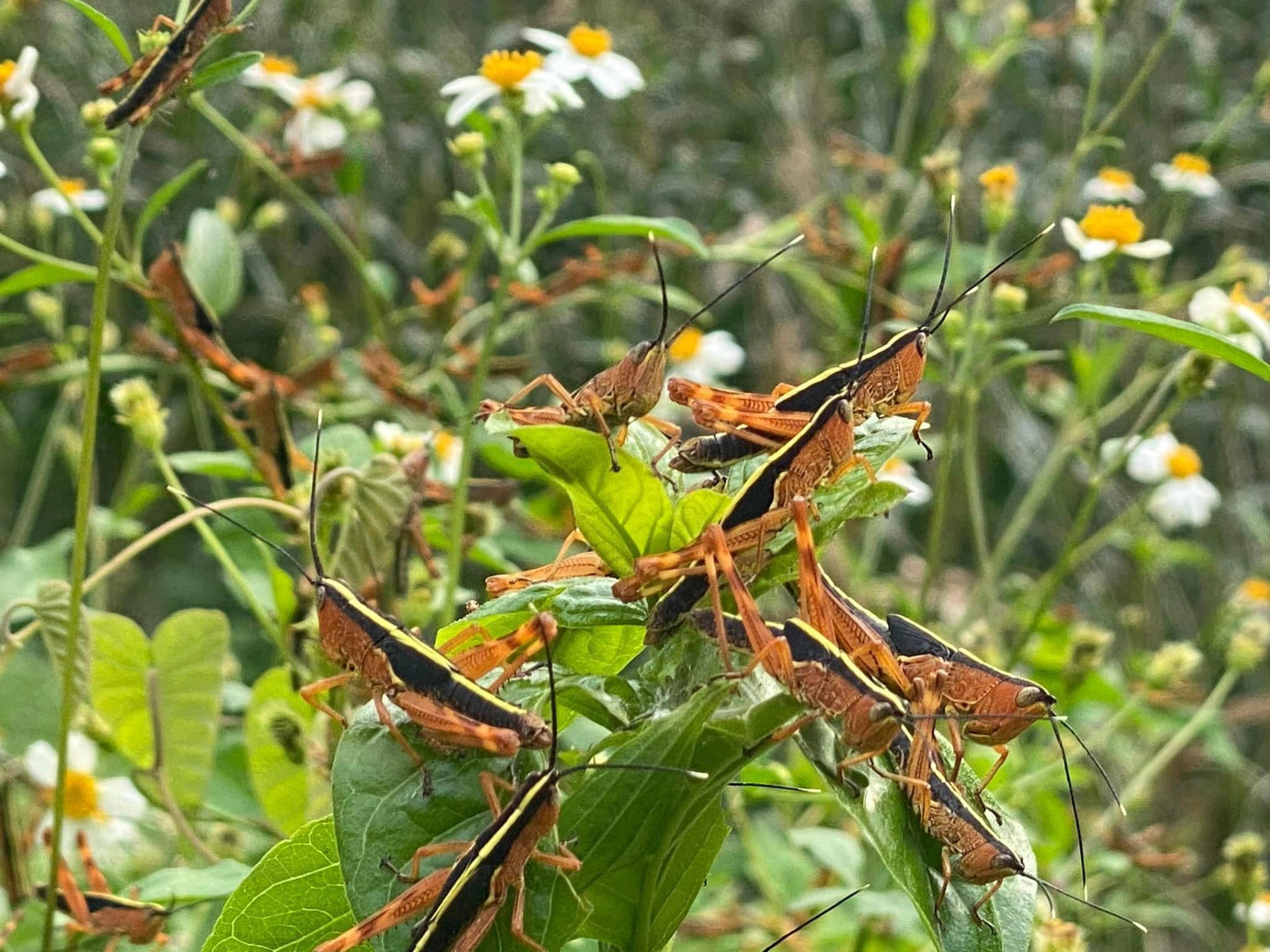The Vietnam Ministry of Agriculture and Rural Development on Thursday sent a dispatch to 11 out of 16 provinces in the northern region, asking local authorities to take urgent measures against the invasion of yellow-spined bamboo locusts.
The crop-devouring locusts have emerged and wreaked havoc on some 1,030 hectares of forests and crops in Cao Bang, Bac Kan, Dien Bien, Lang Son, Son La, Tuyen Quang, Hoa Binh, Phu Tho, Thanh Hoa, Nghe An, and Quang Ninh, marking an increase of some 400 hectares and seven locales compared to the figures seen by the end of last month.
Cao Bang is the hardest-hit province where 773 hectares of crops were infested with the locust swarms.
On June 6, the administration of Cao Bang declared an emergency over the infestation of yellow-spined bamboo locusts in the districts of Nguyen Binh, Hoa An, and Thach An.
The agriculture ministry underlined the need to timely adopt detection and control measures, explaining that the nymphs will mature into adults in the next 10-20 days, posing a serious threat to various crops.
To minimize locust damage, the 11 provinces were told to ask relevant agencies to swiftly detect locust concentrations; spray insecticides in locust-hit areas; closely supervise the emergence, spread, and directions of yellow-spined bamboo locusts to prevent further invasion of the plant-eating pest.
According to the ministry, yellow-spined bamboo locusts and several other types of the species form swarms of winged adults before flying long distances to search for food and places for laying eggs.
In recent years, yellow-spined bamboo locusts, which are fast-moving, highly-destructive, and uncontrollable, have appeared and devastated forests and crops in Vietnam, Laos, and China.
Vietnam first recorded outbreaks of yellow-spined bamboo locusts in 2018, with affected areas including mountainous provinces such as Quang Ngai, Nghe An, Thanh Hoa, Son La, Dien Bien.
Locust swarms destroyed nearly 4,000 hectares of forests and crops each year during the 2016-18 period.
The infestation of the species became less severe in the 2019-23 period.
Like us on Facebook or follow us on Twitter to get the latest news about Vietnam!

















































